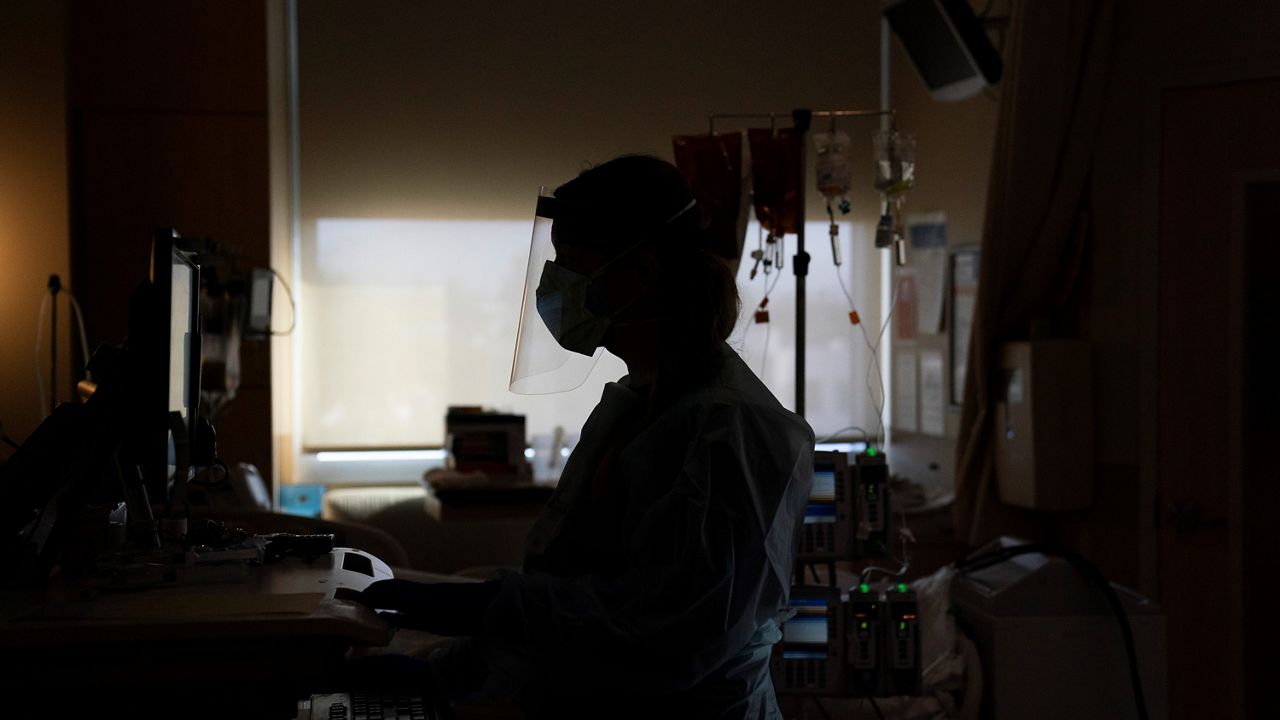MADISON, Wis. (AP) — Patients with COVID-19, most of them unvaccinated, are packing Wisconsin hospitals at levels not seen for a year, a worrying development even before the new omicron variant has been detected in the state, health care leaders said Thursday.
Amid concerns about the new and little-understood omicron variant, Wisconsin health officials urged people to get vaccinated and take other steps to slow the spread. The delta variant of the virus still dominates in Wisconsin and the rest of the U.S.
People who are not vaccinated are nearly 11 times more likely to be hospitalized and 15 times more likely to die than those who have been inoculated, the latest data from the Wisconsin Department of Health Services shows. To date, 9,052 deaths due to COVID-19 have been reported in Wisconsin.
Nearly every intensive care bed in the state — 97% — and almost every intermediate car bed — 98% — are in use, said Department of Health Services Secretary Karen Timberlake.
“We have tools in our toolbox that can help slow the spread,” she said. “We need to buckle down and commit to taking these steps.”
Dr. Ashok Rai, president and CEO of Prevea Health said almost 20% of the beds in his health care system, which serves northeast and western Wisconsin, are taken up by COVID-19 patients. Virtually every patient is not vaccinated, he said.
“They are the ones not only using the highest amount of resources but staying the longest,” Rai said. “Unfortunately our health care systems are overwhelmed right now.”
On a recent day in Green Bay, 28 patients, including three with strokes, had to be turned away and transferred to a hospital more than 200 miles away, Rai said.
“We need your help,” he said. “We need to make sure hospitals are there to take care of everybody.”
There are no confirmed reports of the omicron variant in Wisconsin yet, but that level of testing usually takes a week or more so it is possible it is more widespread than known, said Dr. Ryan Westergaard, the state’s chief medical officer.
For now, nearly every confirmed case is the delta variant, he said.
The U.S. recorded its first known omicron infection on Wednesday, in a fully vaccinated person who had returned to California from South Africa, where the variant was first identified just over a week ago.
A second U.S. case was confirmed Thursday in Minnesota, involving a vaccinated man who had attended an anime contention just before Thanksgiving in New York City that drew an estimated 50,000 people. That would suggest the variant has begun to spread within the U.S.
But there is much that is unknown about omicron, including whether it is spreads more easily or causes more severe disease than the delta variant. Scientists are also studying how well the current vaccines work against it.



